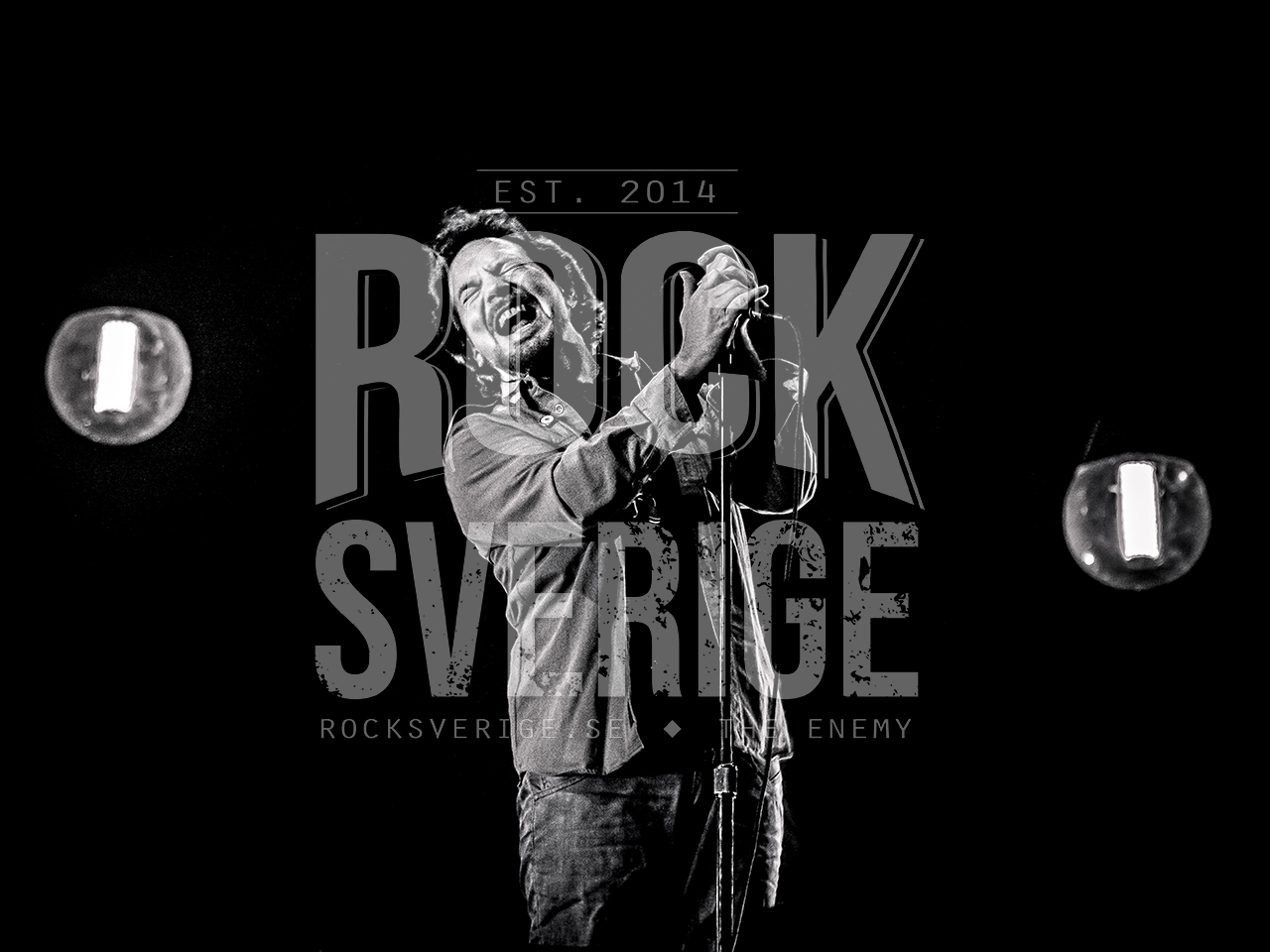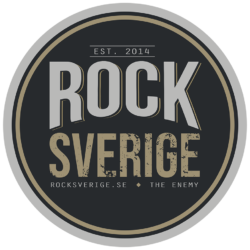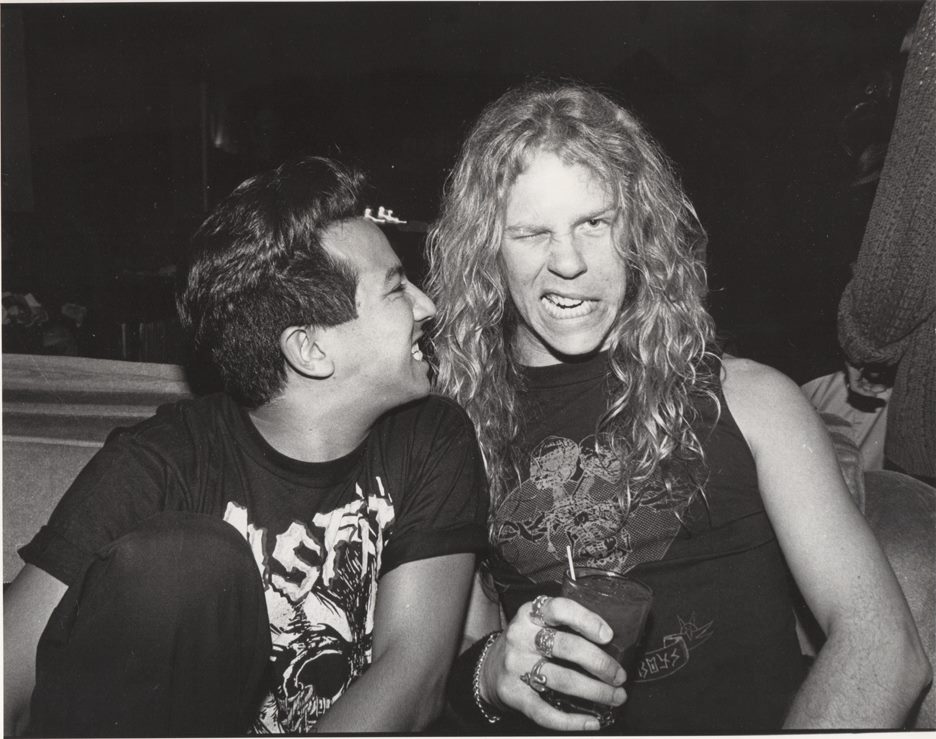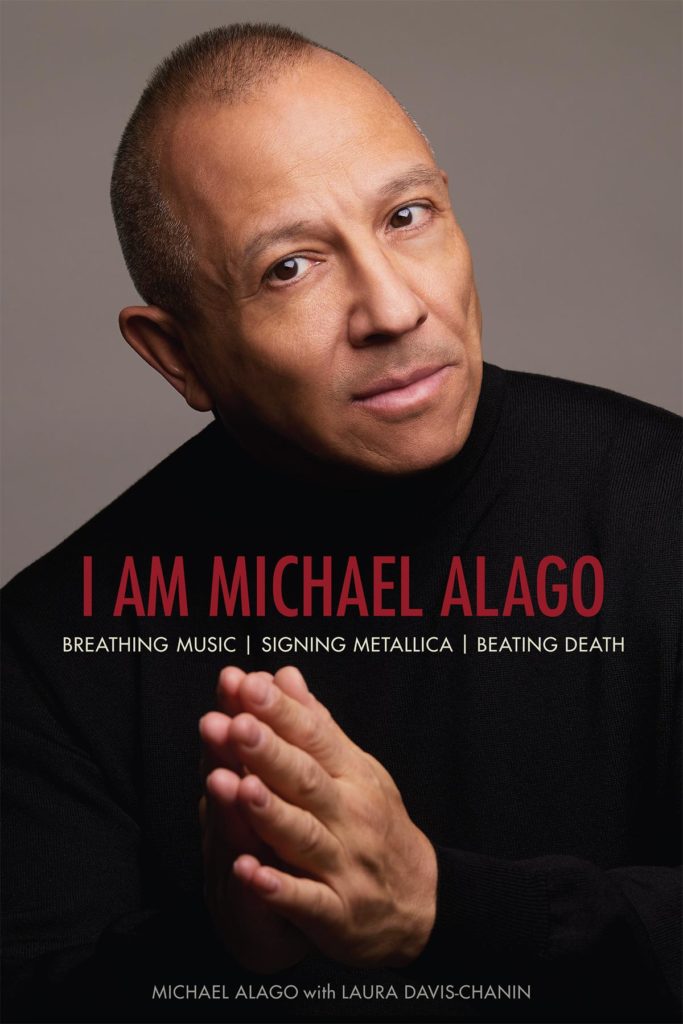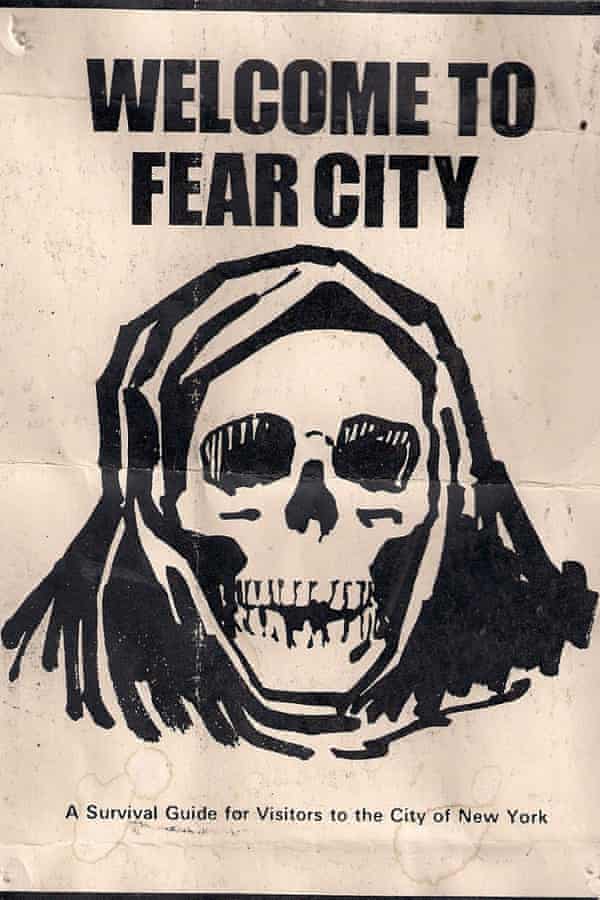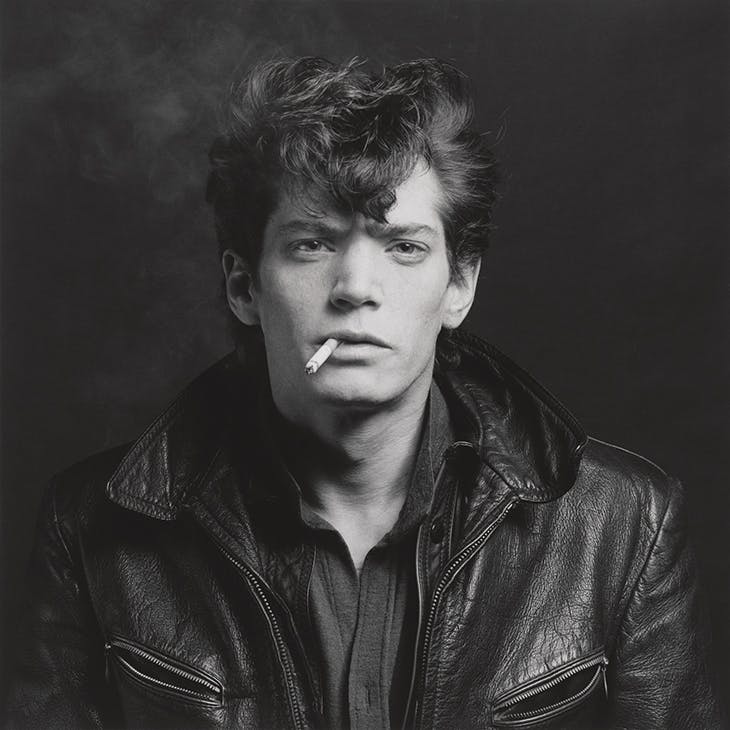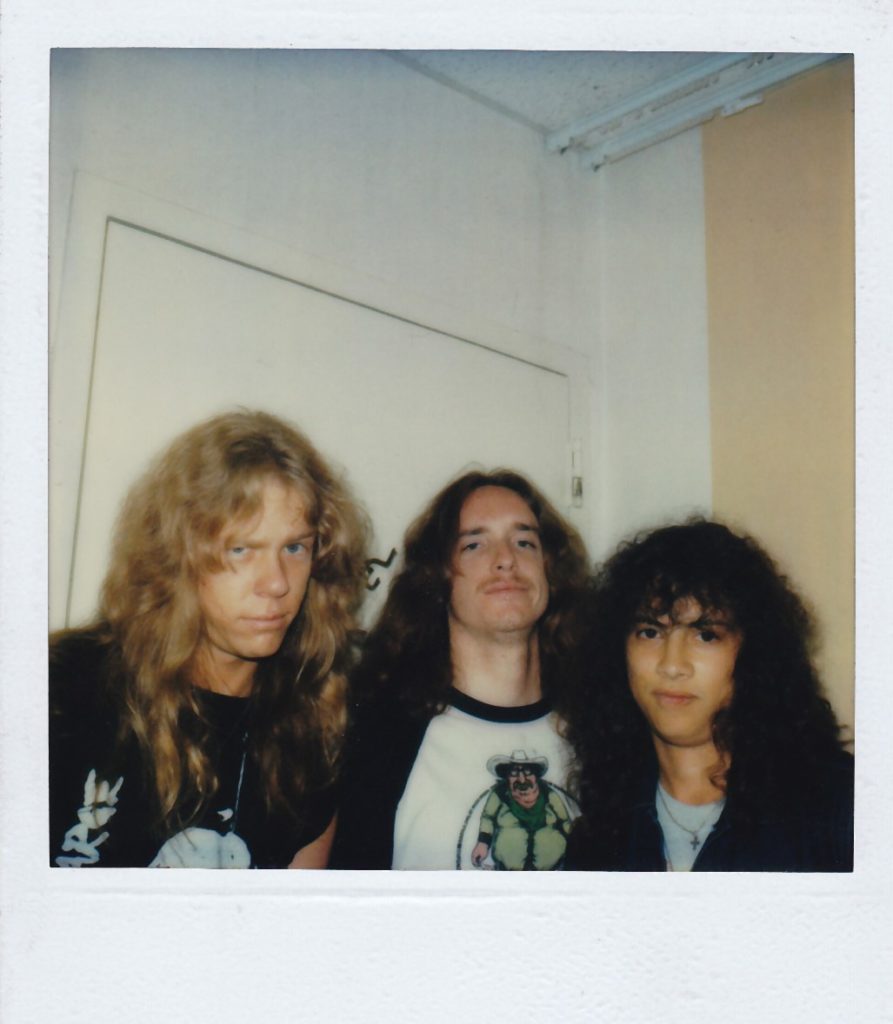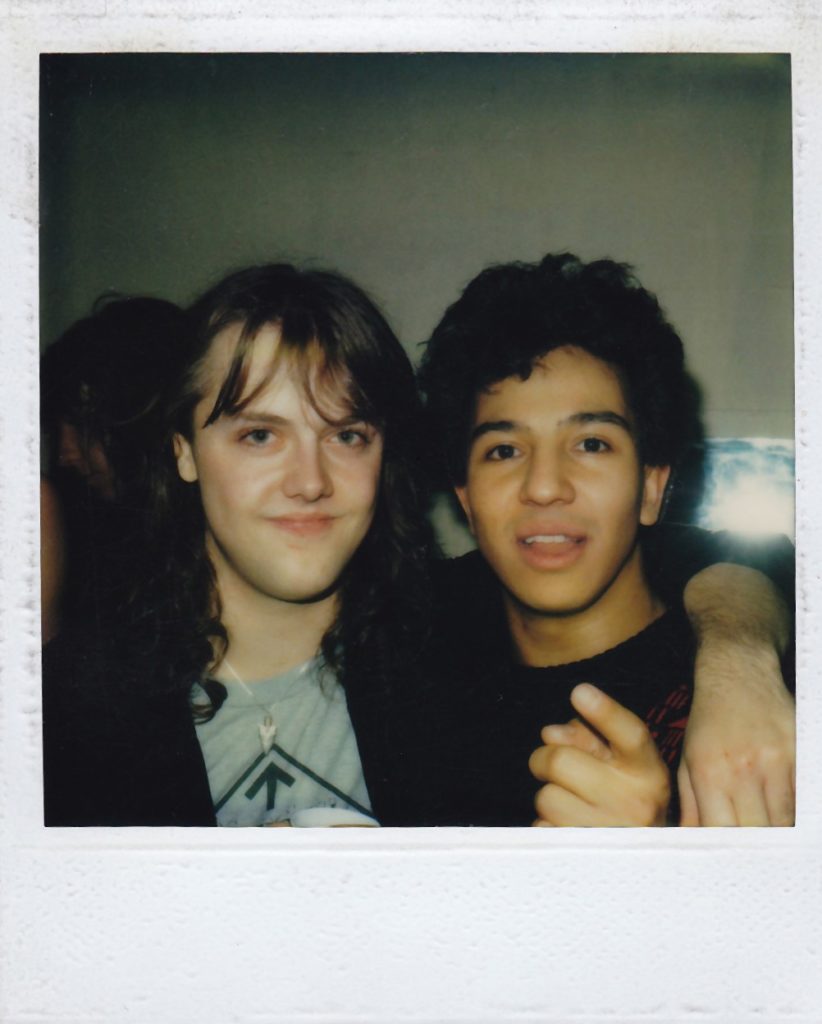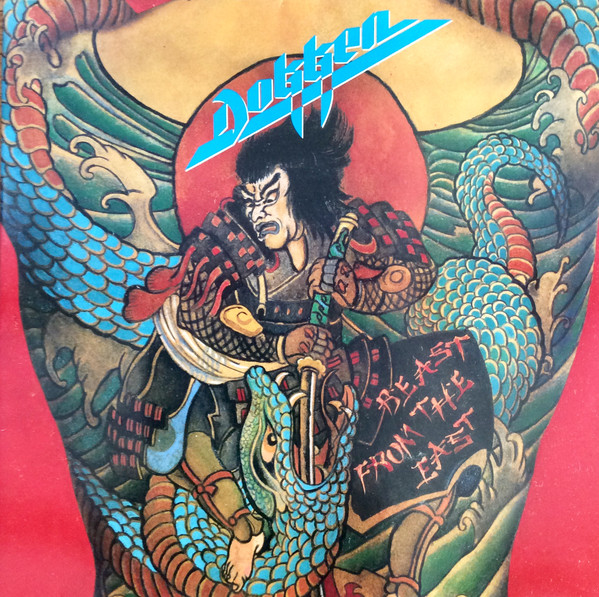Har ni missat dokumentären “Who the fuck is that guy?” om Michael Alagos liv, är det dags att ni ser den nu! Michael signade Metallica till Elektra Records och resten är historia. Vi ringde upp honom i New York för en tid sedan och pratade om hans liv, som han nu även berättar om i boken “I am Michael Alago: Breathing music, Signing Metallica, Beating death”
“Signing Metallica in the summer of 1984 to Elektra Records, I would say is my proudest achievement as an A&R executive.”
Now that you´ve summarized your life with the documentary and also with your book, what´s that like? What´s it like to sit down and go through your own life? Did stuff pop up during the process that you had forgotten about?
Sure. We can start with the documentary. It´s been on Netflix now for almost three years and it´s been getting rave reviews and it has had wild success and that´s why they renewed us again up until at least September 2020. It´s really extraordinary that it got this kind of welcome, but I´ve worked with extraordinary artists and I am a very hard worker and Drew Stone wanted to tell my story. I didn´t want it to just be a music film, because if you´re going to spend all this time with me, it just can´t be that. I wanted it to be about my professional and personal life. I wanted it to be about addiction and recovery and family, health, survival because then you´re giving people a big picture of who I am. We worked on it for three years or so and when we asked all the artists I´ve worked with, like Metallica, Cindy Lauper, John Lydon, Rob Zombie, I was very grateful that they all said yes to be in the film. I think that´s partially because I don´t have bad relations with people. I don´t have time for that. I met John Lydon in 1981 and I did this debacle show with him at The Ritz (New York) and in the end we thought it was a riot and we became friends. I signed him to Elektra in 1985. It was a very expensive deal and we made this record called “Album” and it had a poster we called “Poster” and the cassette was called “Cassette” A fantastic record with so many session artists from Ginger Baker to Steve Vai. The deal was so expensive and we didn´t sell enough records and when you don´t sell enough records for a corporation like Time Warner… all they care about are numbers. So, I signed him in 1985 and I had to drop him in 1986, he´s in my documentary, I´m in his documentary… fast forward 39 years and we´ve never had a bad word with each other. People say “Wait a minute! You never had a bad word with John Lydon?” and I say “No!” I´m not stupid, he´s not stupid and we love each other. I was thrilled with how the film came out. You can´t tell or say everything in 80 minutes, so we take the highs and the lows and we just put it out there. That came out in 2017 and in this time period a little book company called Backbeat Books asked me if I wanted to make a book and they wondered if I had any more stories? I though to myself “Of course I have more stories!” I really don´t remember half my life because my brain is so messed up, but as a young person I kept journals. It wasn´t poetic or creative writing. Really, it was a list of “Taking the B-train from Brooklyn to Manhattan tonight. Going to CBGB´s to see the Dead Boys and the Damned.” Things like that for a good amount of years. Those lists helped this crazy brain of mine remember stuff so I was able to put a book together. I don´t have that kind of discipline so Laura, a friend of mine, helped me with the book. We would just riff and go off on that. She would transcribe all this and then send it back to me and I would say “No, that doesn´t really sound like me. It´s got to be crazy and wild and gay and fabulous!” It took almost three years but we got it done. I was excited to make the book and again, it wasn´t about one thing. There´s all sorts of things in it. Artist friends of mine like Robert Mapplethorpe and Patti Smith and I talk about growing up in Brooklyn.
In the beginning of your book you mention Grand Funk Railroad. They had a huge banner in Times Square back in 1970. Do you have any recollection of that?
Absolutely not. (laughs) I loved the band. I bring up Grand Funk because I started hearing them when “Closer to home” came out and I just thought it was incredible. I wasn´t used to hearing songs that were 10 minutes long. From the very start when I heard them on AM radio, I just thought they were so extraordinary. One of those bands back then who were also one of a kind. Nobody sounded like that. They were a fucking power trio from Flint, Michigan and they had this incredible frontman in Mark Farner. He was really an extraordinary frontman. I don´t remember ever getting to see them play. I´ve seen Mark Farner solo and I still think he´s fantastic. Love the voice. I bought the “Closer to home” 7” and I think that songs was on two different sides of the 7”. Then in 1973 I got the “We´re and American band” record that Todd Rundgren produced.
I read somewhere that around that time, Todd was the best paid producer in the world?
I did read that somewhere, but that´s a distant memory.
Growing up in New York in the 70´s, that city was just a haven for music.
New York City was dirty, filthy and dangerous, but all us young people didn´t care. I think I had a lot of bravado in me, coupled with naiveté and I just thought to myself, “I´m taking that train to where the music is.” and that´s what I did. I think I started in 1975 at 15 years old going to CBGB´s and the owner Hilly Krystal, God rest his soul, let us all in but also let us know that “If I catch you with alcohol, there will eb a two week suspension!” We would drink outside and come back in and hide the six pack. But yes, New York in the 70´s was a haven for all types of music, all types of clubs, whether they were cabaret, rock clubs, bars. It was happening and all wildly diverse as well. Some of the people you might see at Max´s and CBGB´s, there was almost like a bit of a rivalry like if you played at CBGB´s, you couldn´t play at Max´s. I only remember Suicide who got pass all that, because I did see them at CBGB´s and Max´s. There were few of those artists. It was a hotbed of different types of music – glam rock, punk rock, hard rock, heavy metal… and it was all in New York, because you know what, who doesn´t want to play in New York City?
I don´t think you mention them in the book, but did you ever come across KISS back then?
I heard about KISS and one day I took the B-train to Bay Parkway to a place called EJ Korvette. It had a teeny-tiny record section and there was that first KISS record and I bought it. It was just amazing and that was my introduction. I don´t think I saw them live until… I couldn´t tell you when I saw them the first time to be honest, but since then I´ve seen them a bunch. There was a year when I went to Atlantic City with my friend Jimmy and Def Leppard was opening up and they were fabulous and when they play live it sounds like Mutt Lange is mixing the sound. KISS comes on and they start playing songs and it was just like “Wait a minute!” At this point in my life and their life, if they´re not doing their greatest hits, I don´t want to know. Everybody looked at each other for the next hour and a half and it was only in the end when the encores came that they played their famous songs and we were furious. Again, KISS is one of a kind band and thanks to their manager Bill Aucoin who worked on the marketing and the promotion to get them huge… what an extraordinary mind Bill had regarding marketing and promotion.
I recently talked to people from The Brats, Street Punk and Luger and we talked a lot about how it was in New York back then. The excitement.
I saw The Brats at a club that was only opened for like one minute. I went to see The Brats with Cherry Vanilla at a place on Bleecker Street called On The Rocks. It was small and I think you had to go downstairs and there were pillars everywhere, so if you sat at a table and it wasn´t a good table, you couldn´t see anything.
They gave me the same feeling I got from reading your book. What New York was like back then – the clubs, the music, different times, different lives.
Back in the 70´s it was a very exciting New York because of the music and because of Off Broadway theaters that were very experimental and provocative and because of all the fantastic porn theaters in Times Square. We young people were exploring all that and I think I mention in my book that at one point I discovered a weekly newspaper called the Village Voice and the Village Voice had art, music, theater, porn and politics. I couldn´t have given a shit about politics, but I loved everything else in it.
You mentioned Cindy Lauper earlier and in the movie she uses an expression I just thought was brilliant and I´d never heard it before, she says she´s a “bridge and tunnel girl”
Oh, you´ve never heard that before? If you´re a Manhattanite and you come from Queens or New Jersey, you do tunnels and it´s a little bit like an insult, but not the worst thing in the whole world. Cindy is also one of those people, she just lays it on the line. She just tells you the truth and she is also one of a kind.
You were also friends with Mapplethorpe. Great photographer. Saw an exhibition years ago outside Copenhagen. It´s interesting how some things in the right forum is considered art and in another one would be considered hardcore porn?
Yes, he took exquisite black and white photos of famous people and flowers and yes, he was part of this underground S&M culture and some of those S&M photos are X-rated and he was just telling you a story of what was going on in that culture. Now, sure it is a bit pornographic and for me, it doesn´t change the fact that because it´s on a museum wall it´s not that anymore. Yes, some people do look at it like that, but when I look at his overall work, that is just a part of what he shot. It was all part of his brilliant artistry and I just love his work.
Fascinating times. I´ve also read Patti Smith´s “Just kids” which also gives you the same kind of feeling when it comes to 70´s New York.
Patti is a brilliant writer. I´ve been going to see her since 1975 and she gets smarter and wiser every year. When I know a book is coming out I´m the first to run to the bookstore and get it. She never disappoints and she really is a very unique and special woman and artist. She blows my mind all the time and I adore Patti Smith. There´s a lovely short chapter in my book about Patti.
With your whole career and everything you´ve done, you have to look at the signing of Metallica to Elektra Records, as one of or maybe your biggest achievement, right?
Signing Metallica in the summer of 1984 to Elektra Records, I would say is my proudest achievement as an A&R executive. When I saw them in the 80´s, I saw them at L´Amour in Brooklyn in 1982, I saw them at The Stone in SF in 1983 and in 1983 I introduced myself to Lars and gave him my phone number. I knew they were still signed to Megaforce Records and as creative and wonderful as Megaforce was back then, it was a totally independent label that couldn´t finance these bands to take them to the next level. I just knew that Metallica was going to be the biggest band in the world. Every time I saw them my eyes just dotted back and forth to these four young men who were all wildly charismatic, who I felt that they knew from day one what they were doing. Totally dedicated to their craft. James Hetfield has always been an extraordinary ringleader on stage. He is wildly charismatic and he had beautiful teeth and an incredible smile. He knows how to whip a crowd into a frenzy. Here we are 36 years later from when I signed them and we´re still talking about them. They make great records and they still play stadiums and the beauty also of that night at Roseland is that Anthrax got signed to Island, Raven got signed to Atlantic and Metallica got signed to Elektra, so in the end everybody won and in the end Megaforce made out well financially.
When you met Lars that first time, could you tell he was really driven and a leader?
Absolutely! He was funny, smart… and keep in mind, we were practically the same age. He was 21 and I was 23 or 24, but yes, in the early days Lars was the person I spoke to all the time basically. Lars was the one that always called me at Elektra Records. He was their spokesperson and he was determined. He had drive and he was funny and smart and I don´t want to say arrogant, but came across as a strong, young personality.
You always read about Cliff being kind of quiet and more of a hippie kind of guy, right?
I simply adored Cliff. I signed them in 1984 and he was killed in 1986. I didn´t spend a lot of time with him because I was on the East coast and they were on the West coast. The only time I spent with him was maybe backstage at shows. The day after Roseland they all came to my office and we all got Chinese food. I gave them cassettes of The Doors, MC5 and the Stooges. Cliff was really interested in our subsidiary label called Nonesuch which was a lot of esoteric music. That´s what he wanted and Simon and Garfunkel. I said “Cliff darling, I don´t do Simon and Garfunkel, but I can call CBS and get you whatever you want.” For me, in the early days, I thought he was the most seasoned musician of all of them and that´s not to take away from everybody else´s rawness. When you went to see them live, Cliff was a force on stage. He was very funny and lovely and I used to make fun of his bellbottoms and he would tell me to fuck off and go get him a six pack. We had a lot of laughs together.
Back then, working as an A&R, did you have total freedom in offering any kind of band any kind of deal, like with Metallica?
Our chairman Bob Krasnow (1934-2016) had to have some kind of faith in me. If you start signing bands and they don´t sell, you don´t have a job. When I got the job, I had no idea what an A&R meant. It´s the most important department at a record company because if you don´t have great artists and make great albums, you´re fucked. I listened to independent, unsigned music and it usually came to my office in boxes in the form of cassettes and vinyl. That was part of my job every day for 25 years. Now, there was a lot of rotten music in those boxes, but you have to be nice. Most of them got a letter from me on Elektra stationary basically saying “Thank you. No thank you. It´s not for us, but if this is your dream, good luck!” Over the years there was tons of good stuff, but if I signed everything good I would be overwhelmed and I´d be spending company money and it just wouldn´t make sense. I really had to narrow my focus and learn what is great. Great is charismatic, great knows how to speak to an audience. When you see somebody live and the audience gives back to you what you´re giving them, that says something about an artist whether it´s a group or a singer-songwriter and if you know how to tell a great story that has universal appeal, then hopefully that is the makings of greatness. In my overall career I didn´t sign a lot of artists because I was very specific. There could be people that the A&R industry was talking about, bands from the Sunset Strip – Oi! Everybody was like “You know that group is going to be huge!” and all I could think of was “That´s nice. I don´t like them at all.” I really took all of this personal. If there were bands out there and people were saying they were going to be huge, I didn´t feel it and I just wouldn´t sign it. That´s how I lived my A&R life. I had to love what I signed and hope there was some success, so I could keep my job and turn as many people onto new music as I could.
You mentioned Sunset Strip and you worked with Dokken, right?
Oi, oi, oi! I worked with Dokken because another A&R person signed them and he left, so by default I became the heir of Dokken. I absolutely adore George Lynch. I´m crazy about him. A unique character, a guitar hero and a wild and crazy, good person. I don´t know if I have to say more about Dokken… I knew they wanted to make a live album. There was a series of dates where they were opening up for AC/DC. I had to figure out how to let the company put all of this on my credit card. I went over to Europe and one memorable date was in London. I love Brian Johnson, I love AC/DC. Come on! We have to not speak to people if they tell us they don´t like AC/DC. One of the world´s greatest bands. I get to the venue in London and I´m walking down the hall and I hear all this yelling and screaming and once again it´s Don Dokken and George Lynch fighting. All of a sudden a door swings open that someone almost had put their hand through and of course it was George. Out of control, but I guess better the door than Don´s face and of course it was one hour before they had to go on stage, so I had to retrieve an ice bucket and put his hand in it and hope that it would be ok for him to play. It was and I loved those shows. They continued on the road as headliners and that´s when we went to Japan to do shows in Osaka, Nagoya and Tokyo and we recorded those concerts which became “Beast from the East” (1988)
What was it about the Sunset Strip scene that didn´t appeal to you?
Even at the very early stages of Sunset Strip it was too glam, too pretty, too pop and musically not dirty and hard enough, so overall I just didn´t really care. Back then I wanted to hear Metallica and Megadeth and every time I did an interview I would always bring up Kreator and Voivod. I booked Voivod at The Ritz back in the day and “Killing technology” (1987) is one of the greatest metal records ever because it´s that different and it made the difference. Even though Kreator or Voivod never got the success as Metallica, they were always, to this day, near and dear to my heart. I wanted things dirtier, harder and different.
Is this the music you still listen to today?
Here we are in 2020 and I´ve been doing a lot of work on my documentary and I´m doing a lot of interviews for my book, but I still go out and I still listen to heavy stuff. There´s a great bar in Brooklyn called St Vitus and I was about to go see Rotting Christ from Greece, but damn that Corona virus! I still love and appreciate heavy music. A good year and a half a go my cousin in Florida said “Michael, my next door neighbor´s son has a band.” How long have I been hearing that? It´s usually rotten, but it´s my cousin so I said “Absolutely!” One of the band members sent me a cd and they´re called Ether Coven. They made and independent record called “There´s nothing left for me here” (2017). I loved the title, put the record on and it was brutal as fuck. They are very smart musicians and there were times that this record had this majestic quality to it. I fell in love with them and I went down to Florida, I saw them live and I thought “I´m going to help these people.” I got them a deal at Century Media and they have a record out called “Everything is temporary except suffering” (2020) Erik Rutan from Morbid Angel produced and mixed the album and he did a brilliant job. It´s brutal, it´s majestic and it sometimes has qualities of this band from New York called Swans. If bands play on 10, these guys try to play on 12.
I´ve seen that you´re good friends with Jessica Pimentel, who´s of course engaged to Thomas Haake from Meshuggah.
What a character! Wonderful people! A great beauty, a terrific actress and she was kind enough to write a blurb on the back of my book. We became friends because I think we met backstage at a Slayer show, of course, and she´s just a wonderful and very spiritual, very hardcore human being. I´m crazy about her.
What do you think of a band like Meshuggah?
Love it! Got to see them recently at Hammerstein Ballroom and they blew my mind. I mean, another band that is so fucking talented. That kind of stuff appeal to my senses. I just love that style of music. Jessica and I sat together in one of the balcony seats and we went insane with all of our friends.
Text: Niclas Müller-Hansen
Foto: Bokomslag och Metallicabilder via Michael Alago
